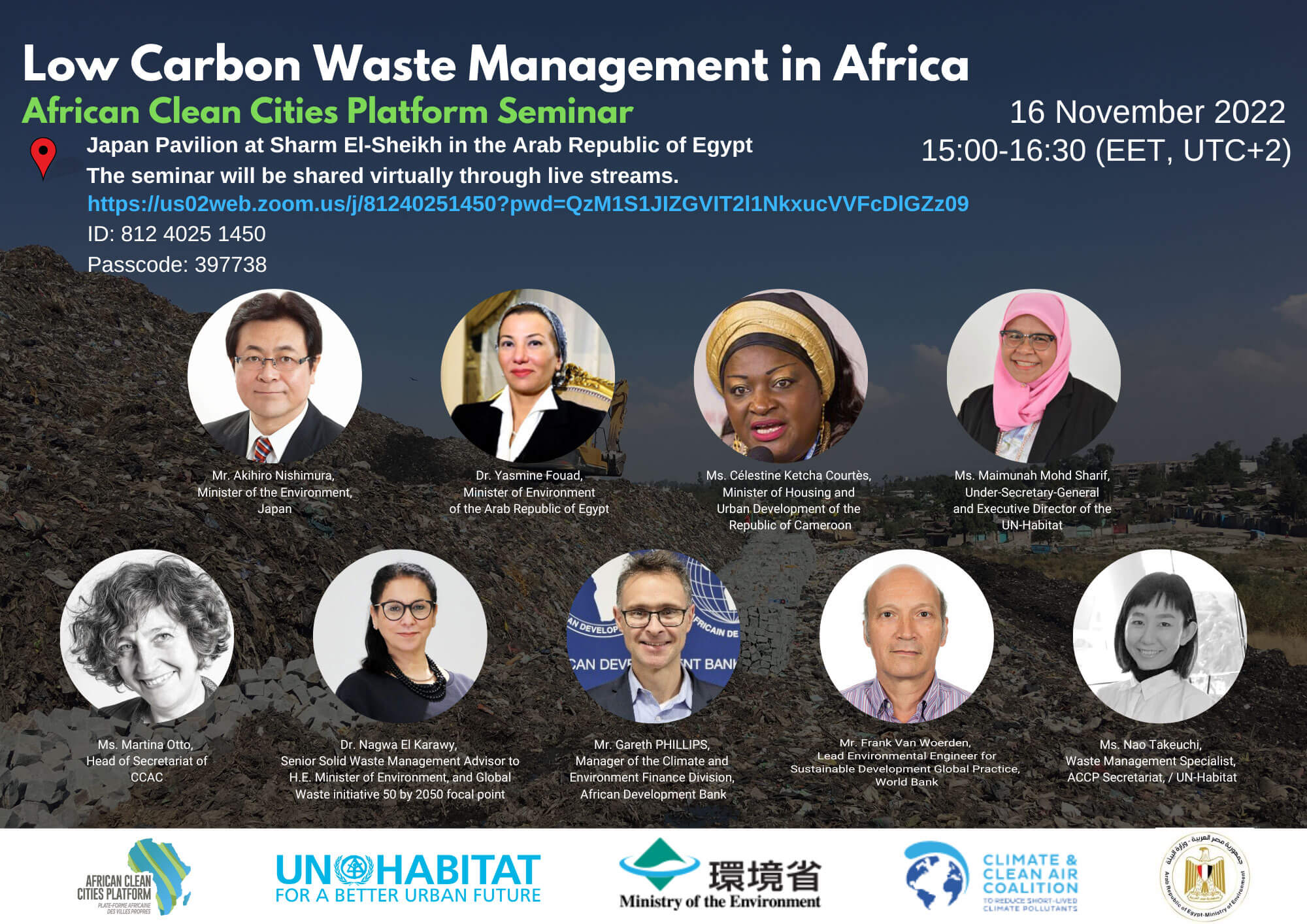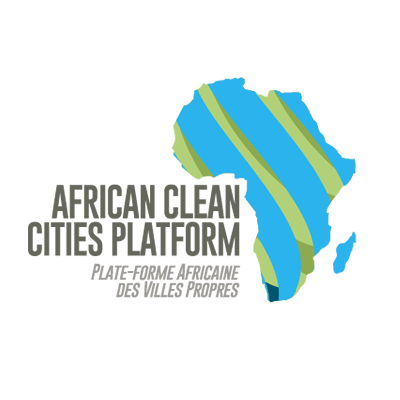16 November 2022
Low Carbon Waste Management in Africa

Egypt, the host country of COP 27, launched the Global Waste Initiative 50by2050 with the aim to treat at least 50% of waste produced in Africa addressing both mitigation and adaptation, where at least 70%of waste is openly dumped or burned. This is the first initiative in the COP history that focus greatly on waste challenges.
Japan, a leading country in sound waste management, has been supporting African countries and cities to address waste management challenges through African Clean Cities Platform (ACCP). ACCP is now grown to a network of 157cities from 43countriesand (as of November 2022) actively promotes the transition from open dumping to controlled landfill using affordable low carbon waste management technologies (e.g., Fukuoka Method) while developing impactful projects on the ground, using SDG indicator 11.6.1 monitoring as a central tool. The network includes international financial institutions and NGOs to facilitate the bankable project development.
Mr. Akihiro Nishimura, the Minister of the Environment, Japan, opened the seminar, highlighting the Africa’s waste management issue and long-term action is important to transit towards circular economy in Africa and the world, while the commitment to tackle current waste management problems that African cities are facing, especially GHG emissions from waste disposal sites closely related to climate change, is also important. Following this, Dr. Yasmine Fouad, Minister of Environment of the Arab Republic of Egypt (Spokesperson: Dr. Tarek El-Araby, CEO of Waste Management Regulatory Authority (WMRA)) recalling the COP26 objectives, which included reaching for more ambitious targets to reduce methane emissions and increasing funds for climate actions, and expressed that 50by2050 will build on existing initiatives in Africa, therefore discussions with ACCP are crucial. Ms. Maimunah Mohd Sharif, Under-Secretary-General and Executive Director of the UN-Habitat emphasized that UN-Habitat’s commitment to support African cities in transition from open dumping to controlled landfill using affordable low carbon waste management technologies together with partners.
After the High Level Session, technical intervention was made by, firstly, Ms. Martina Otto, Head of Secretariat of CCAC, mentioning the importance of the Global Methane Pledge of reducing methane emissions by 2030 of 30%, then Ms. Nagwa El Karaway, Senior Solid Waste Management Advisor to H.E. Minister of Environment, and Global Waste initiative 50 by 2050 focal point, mentioned the goal of waste management initiatives in Africa is to create a bankable waste management master plan and called to join the initiative by many countries. Mr. Gareth PHILLIPS, Manager of the Climate and Environment Finance Division, African Development Bank, pointed out the need to put the right treatment infrastructure in place and explained about the African Climate Change Fund was able to secure 5 million USD with the goal of focusing on methane. Then Mr. Frank Van Woerden, Lead Environmental Engineer for Sustainable Development Global Practice, World Bank (online), emphasized that the investments can only work if local conditions allow it, however, the waste sector is different because the capital cost is about 30% and the operation and maintenance cost is about 70%. He continued that this needs to be considered during the project planning to make the project economically viable. Lastly, Ms. Nao Takeuchi, ACCP Secretariat, Waste Managemen6t Specialist, Urban Basic Services Section, UN-Habitat, explained the use of the SDG indicator 11.6.1 monitoring methodology (WaCT) to fill the gaps in data and facilitate interventions. She continued that At ACCP, the goal is to develop impactful projects on the ground. This can be achieved with a WaCT application followed by a local stakeholder workshop where the results can be discussed and finally develop an impactful project with local consultation.
In the panel discussion session, what partnership and coordination would be useful to create impacts o the ground was discussed. Financial partnerships between the institutions including ACCP and 50by205 and models for financing and international funding for climate efforts were mentioned. In addition, the importance of information sharing on monitoring and information platforms are confirmed.
